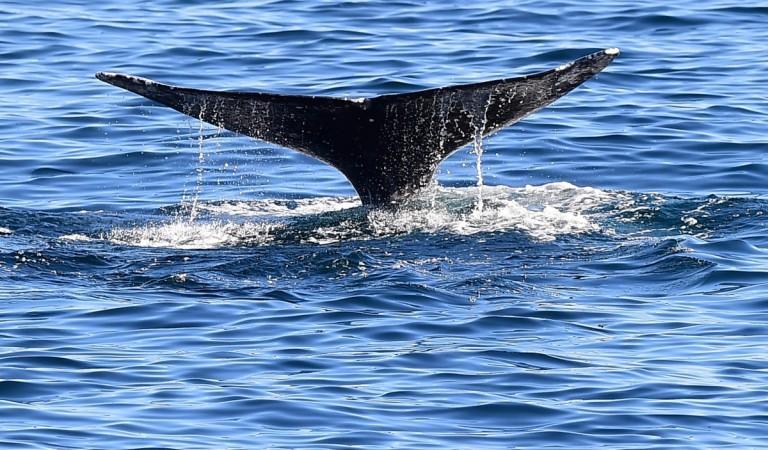
Antarctica has been fascinating researchers due to its remoteness and less-explored landscape for quite some time now. Recently, a video captured from this region showing a minke whale swimming under a blanket of floating ice has them all excited.
What is even more fascinating about the video is this is the first underwater video of a minke whale in the Ross Sea — a deep bay of the Southern Ocean in Antarctica.
The rare footage, which shows a gentle creature swimming in the blue ocean, was shot by Regina Eisert, a marine mammal expert at the University of Canterbury in New Zealand.
Regina was on a recent Antarctic expedition and was trying out an underwater-camera prototype designed by Anthony Powell when she captured the footage. Powell is an Antarctic filmmaker at the production company Antzworks.
"The whole whale glides past — this is such a lucky shot," said Regina in a statement.
Little is known about minke whales. The black-and-white creatures can grow up to 33 feet (10 meters) long and weigh some 10 tons, reported Live Science, citing the government agency responsible for carrying out New Zealand's scientific and environmental-protection projects in Antarctica — Antarctica New Zealand.
These creatures have a distance relative — the common or north Atlantic minke whale.
Minke whales are generally solitary creatures, but can create sounds at over 150 decibels — which can be heard from many miles away — to communicate with other whales, reported whalefacts.org.
While the International Union for Conservation of Nature (IUCN) Red List categorizes the common whale as "Least Concern", insufficient information is available for the Antarctic minke whale and the species is listed as Data Deficient.
Eisert also shared that despite there being over 100,000 minke whales in the Ross Sea region, very few studies had actually been done on the mammals. This is largely due to the cost and difficulty of studying them in such a remote and inhospitable part of the planet.
Eisert's own research, which was sponsored by The Pew Charitable Trusts, also aims at examining the effect of a new marine protected area on the Ross Sea ecosystem, Phys.org reported.
Watch the minke whale video here:









